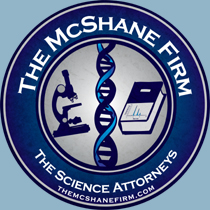In a series of posts, we are going to talk about method validation. Part 1: Introduction-Is it valid, invalid or non-validated? Part 2: What is method validation? Part 3: Can we use someone else’s validated method? Part 4: What triggers verification, re-validation or out right new validation of a method? Part 5: What are the […]

Method Validation for Lawyers Part 4: What triggers verification, re-validation or out right new validation of a method?
In a series of posts, we are going to talk about method validation. Part 1: Introduction-Is it valid, invalid or non-validated? Part 2: What is method validation? Part 3: Can we use someone else’s validated method? Part 4: What triggers verification, re-validation or out right new validation of a method? Part 5: What are the […]

Mass Spectroscopy for Lawyers Part 9: Other topics of interest in GC-MS
In a series of posts, we are going to talk about Mass Spectrometry. Introduction-The different configurations and the Electron Impact process What types of mass analyzers are there? What type of detectors are there? What types of analysis can be done? How do you read the output? How do they come to a qualitative measure […]

Mass Spectroscopy for Lawyers Part 8: A scientific war, between spectroscopists and chromatographers is co-eution a problem in hyphenated MS work?
In a series of posts, we are going to talk about Mass Spectrometry. Introduction-The different configurations and the Electron Impact process What types of mass analyzers are there? What type of detectors are there? What types of analysis can be done? How do you read the output? How do they come to a qualitative measure […]

The Particular Witness Rule as established in Bullcoming v. New Mexico
SPECIAL EDITION NEWS FLASH: [Full Disclosure: I was one of the co-authors on the NACDL/NCDD amicus curiae briefs in the case of Bullcoming v. New Mexico. You can hear the audio of the oral argument here. I have waited several hours on purpose to post here in order to try to remain objective.] On September […]

Is it legitimate for a crime laboratory to use ‘historical data’ to prove its test results are valid?
I am lucky to get questions from colleagues. I am honored by it, and I thank them for the opportunity to answer their questions. From time to time I am going to feature questions that I get from them if they provide for teachable concepts. This question from a colleague provides for just such an […]

Why doesn’t your state crime laboratory use AMDIS?
I have written about chromatography, gas chromatography (GC) and even gas chromatography with mass spectrometry (GC-MS). Here they are (in no particular order): GC-MS is not perfect: The case study of methamphetamine Why do I see two peaks on my EtOH analysis using HS-GC-FID? What is the difference between HS-GC-FID and GC-MS? Drugs of Abuse (DOA) […]

Why do instruments need to be calibrated?
Calibration (and bias) schema is a procedure that imperfectly transforms a response into a useful measure. Some crime laboratories have no method or manner as to how, why or when they should calibrate their instruments. Other laboratories have truly arbitrary intervals that they calibrate their instruments, but then they declare that this arbitrary interval is […]

Retesting Blood Alcohol Results
Sometimes, one of the scariest tests in the forensic science world are the more “routine” ones, such as Blood Alcohol analysis (meaning EtOH). There are such high demands in terms of throughput and such little real training in analytical chemistry in performing the assay given to the analysts that the potential for error is rather […]

Fool’s Gold or Real Gold? HS-GC-FID is it specific or selective or neither?
So many times, Headspace Gas Chromatography Flame Ionization Detector (HS-GC-FID) is described by government expert witnesses as the “gold standard” in forensics. This trite phrase is very misleading. HS-GC-FID analysis is a very good technique when compared to other assays, but it is not infallible and it is not even the best chromatographic method available […]

How far have we come in forensic science?
There’s an old saying: “Things aren’t as bad as they used to be.” But is this true in forensic science? Eric Lander is a Professor of Biology at the Massachusetts Institute of Technology (MIT), a member of the Whitehead Institute, and director of the Broad Institute of MIT and Harvard. He currently is co-chair of […]


